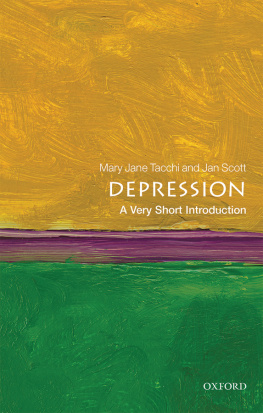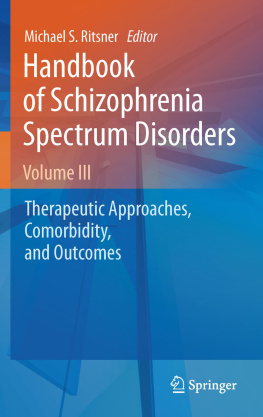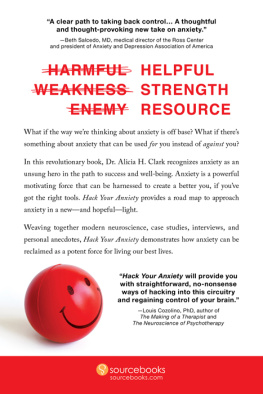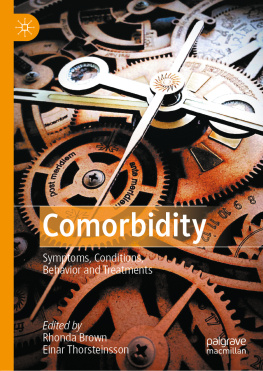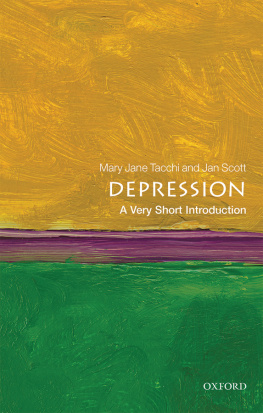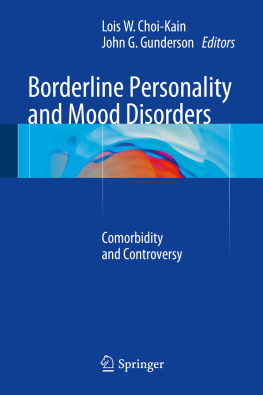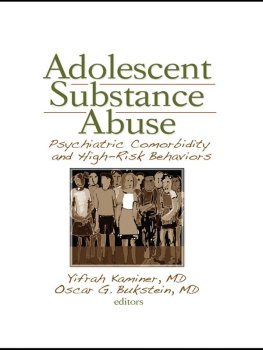Cover
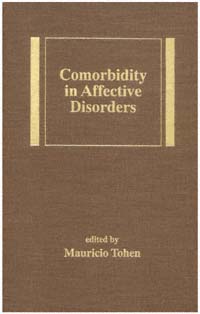
| title | : | Comorbidity in Affective Disorders Medical Psychiatry ; 11 |
| author | : | Tohen, Mauricio. |
| publisher | : | Informa Healthcare |
| isbn10 | asin | : | 0824702123 |
| print isbn13 | : | 9780824702120 |
| ebook isbn13 | : | 9780585382678 |
| language | : | English |
| subject | Affective disorders--Complications, Comorbidity, Affective Disorders, Psychotic--epidemiology, Comorbidity. |
| publication date | : | 1999 |
| lcc | : | RC537.T63 1999eb |
| ddc | : | 616.85/27 |
| subject | : | Affective disorders--Complications, Comorbidity, Affective Disorders, Psychotic--epidemiology, Comorbidity. |
Page null03
Comorbidityin AffectiveDisorders
Page null04
Medical Psychiatry
Series Editor
William A. Frosch, M.D.
Cornell University Medical College
New York, New York
1. Handbook of Depression and Anxiety: A Biological Approach, editedby Johan A. den Boer and J. M. Ad Sitsen
2. Anticonvulsants in Mood Disorders, edited by Russell T. Joffe andJoseph R. Calabrese
3. Serotonin in Antipsychotic Treatment: Mechanisms and Clinical Practice, edited by John M. Kane, H.-J. Mller, and Frans Awouters
4. Handbook of Functional Gastrointestinal Disorders, edited by KevinW. Olden
5. Clinical Management of Anxiety, edited by Johan A. den Boer
6. Obsessive-Compulsive Disorders: Diagnosis Etiology Treatment, edited by Eric Hollander and Dan J. Stein
7. Bipolar Disorder: Biological Models and Their Clinical Application, edited by L. Trevor Young and Russell T. Joffe
8. Dual Diagnosis and Treatment: Substance Abuse and ComorbidMedical and Psychiatric Disorders, edited by Henry R. Kranzler andBruce J. Rounsaville
9. Geriatric Psychopharmacology, edited by J. Craig Nelson
10. Panic Disorder and Its Treatment, edited by Jerrold F. Rosenbaumand Mark H. Pollack
11. Comorbidity in Affective Disorders, edited by Mauricio Tohen
12. Practical Management of the Side Effects of Psychotropic Drugs, edited by Richard Balon
ADDITIONAL VOLUMES IN PREPARATION
Psychiatric Treatment of the Medically III, edited by Robert G.Robinson and William R. Yates
Page i
Comorbidityin AffectiveDisorders
edited by
Mauricio Tohen
Lilly Research Laboratories
Indianapolis, Indiana and
McLean Hospital, Harvard Medical School
Boston, Massachusetts

Page ii
ISBN: 0-8247-0212-3
This book is printed on acid-free paper.
Headquarters
Marcel Dekker, Inc.
270 Madison Avenue, New York, NY 10016
tel: 212-696-9000; fax: 212-685-4540
Eastern Hemisphere Distribution
Marcel Dekker AG
Hutgasse 4, Postfach 812, CH-4001 Basel, Switzerland
tel: 44-61-261-8482; fax: 44-61-261-8896
World Wide Web
http://www.dekker.com
The publisher offers discounts on this book when ordered in bulk quantities. For more information, write to Special Sales/Professional Marketing at the headquarters address above.
Copyright 1999 by Marcel Dekker, Inc. All Rights Reserved.
Neither this book nor any part may be reproduced or transmitted in any form or by anymeans, electronic or mechanical, including photocopying, microfilming, and recording, orby any information storage and retrieval system, without permission in writing from thepublisher.
Current printing (last digit):
10 9 8 7 6 5 4 3 2 1
PRINTED IN THE UNITED STATES OF AMERICA
Page iii
About the Series
Welcome to the world of multiple diagnoses.
When dinosaurs roamed the earth and all we had for psychiatric nosologicguidance was DSM-2, a single diagnosis was commonly considered adequatefor each patient. The classification was usually thought of as hierarchical: whenthe patient was diagnosed as having schizophrenia, the presence of obsessive-compulsive symptoms was thought of as a manifestation of the underlying illness rather than as an additional syndrome. The patient's avoidant behavior wasmerely symptomatic of schizophrenia and not seen as indicative of a personalityor personality disorder. The development of multiple diagnostic axes of Spitzerand the DSM-3 taskforce was powerfully shaped by a number of forces. Important among these were the development of research criteria for diagnosis ofpotential subjects (patients) for controlled study of uncomplicated illness, andthe realization that most patients had personalities as well as illnesses. I believethat the introduction of the personality axis was also, unconsciously, an atonement for the deinstitutionalization of the previously beloved term neurosis. Inaddition, and also probably outside of awareness, was Dr. Spitzer's experienceas a medical student with the New York Heart Association's multi-axial diagnostic scheme for heart disease. In that system, every patient received an etiological, anatomical, physiological. and functional diagnosis.
DSM-3R and DSM-4 have further eroded the hierarchic structure of our diagnostic scheme. This, along with the use of criteria sets, has resulted in many,and perhaps most, patients receiving several diagnoses. In the absence of knownetiologies and clear pathophysiologic and/or psychopathologic pathways, thismay be the sensible system to use until we deepen our understanding of underlying processes. Certainly, for example, the presence of substance abuse appearsto complicate the course and response to treatment of other psychiatric illnesses.Similarly, at least some substance abuse is precipitated or reinforced by psychiatric illness. Our ability to make the necessary multiple diagnoses will help usrefine prognoses and shape our treatments to the real needs of patients.
Dr. Tohen has gathered a distinguished group of contributors for this volumewhich summarizes our current knowledge of comorbidity in affective illness.Careful reading and application will help us to help those in need.
William A. Frosch
Page iv
Page v
Preface
Considering that half of all psychiatric patients have more than one diagnosis,comorbidity can be considered the rule rather than the exception. Individualswith affective disorders are especially susceptible to comorbid conditions inboth treatment- and population-based samples. Two large population-basedstudies conducted in the United States estimated the lifetime rate of comorbidityin affective disorders as high as 75%. Not only is comorbidity in affective disorders highly prevalent, but in addition it has major implications for complicatingtreatment and worsening patient outcome. Comorbidity also has tremendous impact on the design of clinical trials and outcome research.
This textbook was conceptualized as a tool for both clinicians and researchers. For clinicians, it offers assistance in the diagnosis and treatment of patientswith affective disorders. Knowledge of the epidemiological and diagnostic challenges presented by comorbidity in affective disorders aids the clinician in treatment planning by taking into account the impact of comorbidity on both treatment and outcome. For the researcher, knowledge of comorbidity in affectivedisorders is essential for the proper design of clinical trials and outcome studies.In the design of clinical trials, the investigator needs to consider if the exclusionof patients with comorbidity will affect the generalizability of the findings or ifinclusion of these patients will affect the validity of the results. For outcomestudies, the presence of comorbidity may need to be considered as a separatefactor and analyzed as such.
Next page


